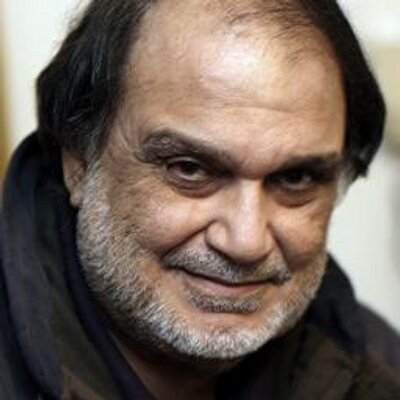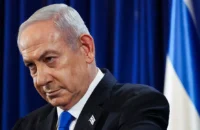by Khaled Ahmed
Nation states were sought to be superceded through the EU, ASEAN, EAC (Africa) and SAARC partly because they tended to designate external enemies and go to war with them in order to attain internal cohesion. But there was another fatal defect equally in evidence: Once internally united, they embarked upon an even more lethal process, exclusion, that is, cleansing themselves of unwanted communities, to make themselves more “pure”.
It so happened in Pakistan on June 15, 2016 that in a discussion called Ishq-e-Ramadan (Passion for Fasting), a well-known model, Hamza Ali Abbasi, acting as TV host on Aaj News, expressed sympathy for the constitutionally apostatised community of Pakistani Ahmadis. He was talking to a popular religious scholar, Maulana Kaukab Noorani Okarvi. Five million Ahmadis have been declared non-Muslim by the 1974 second amendment of the constitution, barring them from observing any Islamic ritual including fasting, while all Muslims must proclaim their identity by condemning the community in official documents.
Abbasi had definitely overstepped the TV bar on expressing heretical views. In the eyes of Pakistani Muslims he had no business flouting the constitution and declaring that injustice had been done to Ahmadis through exclusion from the faith without giving them a protected identity as a minority.
The cleric in the talk-show lost no time in condemning him, not so much out of personal outrage as from an instinct of self-preservation.
Okarvi roared: “The honour of this nation is very much alive… If law (against Ahmadis) doesn’t take action, Muslims are ready to take action. It is law in the Pakistan armed forces that anyone who commits treason be shot dead at that very spot. If this is rule for an army, is my Prophet not worth even this much dignity? This (anti-Ahmadi law) is a part of Pakistan’s constitution. How dare you speak about this issue? Our honour does not allow us to tolerate this crime. We are very peaceful people, but if someone dares say such things about the finality of prophethood, then remember that we are all soldiers in the army of Islam. And we have no hesitation in this matter. Giving our life in this cause is the biggest honour for us. Anyone who remains silent on this issue is a criminal and is complicit…”
(Five days later, on June 20, 2016, an Ahmadi doctor, Chaudhry Khaliq Ahmad was shot dead in Karachi. The 49-year old homeopathic practitioner was slain while tending to his patients.)
This is the language of “exclusion” and there is a pledge of violence in it that the Ahmadi community has faced since the establishment of Pakistan, and legally since 1974. The TV host stood targeted. Predictably, the Pakistan Electronic Media Regulatory Authority (PEMRA) received thousands of messages from the fasting population, blasting Abbasi and the channel for having blasphemed. PEMRA hastily banned Abbasi from appearing on TV.
The process of “expelling the trash” goes on among many nations. It is visible as is intolerance in India these days but without the sanction of law. Many nations have done it in the past through “pogroms” and concentration camps, but in the 21st century it is the Muslim state that is particularly afflicted by it, at times under law but also with impunity.
We know that Egypt hates its Christian Copts and seeks to achieve purity of national identity through their extermination. But the attitude of the Iranian state towards the Bahai community is similar to what Pakistan does to Ahmadis, who are often said to have been created and subsequently protected by the British Raj.
In a recent incident, this was demonstrated when Faezeh Hashemi, daughter of a former twice-president Ayatollah Akbar Hashemi Rafsanjani, tried to fraternise with Faribeh Kamalbandi, a Bahai leader serving life in prison. Rafsanjani tried to avert the wrath of the state by describing the Bahai faith as “a deviant sect created by colonialists”, which “we disavow and have always done”.
Rafsanjani as president had fallen foul of the real power, the spiritual leader of Iran, because of his moderation, which is a kind of swearword among Muslims. His children, son Mehdi Hashemi and daughter Faezeh, made it tougher for him by being thrown in jail for their outspokenness. Faezeh, who last month offended again with Kamalbandi, has caused at least one grand ayatollah and one ayatollah to lose their cool.
Ironically, the Shia who demonise the Bahai in Iran are seeing fellow Shia being cut down by al Qaeda and the Islamic State in the Arab states across the Gulf without realising that they too had become “trash”. In Pakistan, whose founder was a Shia, his community is facing “genocide”. Note the irony in a headline carried by The Times of Israel on June 20, 2016: “Pakistani Shiite leaders say sectarian attacks are genocide”.
Shia leader of Majlis Wehdat-e-Muslimeen, Pakistan, Allama Raja Nasir Abbas Jafri is continuing to use the word to describe the ongoing target-killing of his community in Pakistan. The nation-state is not done yet with “expelling trash”, it seems.
http://indianexpress.com/article/opinion/columns/fatal-non-muslim-pakistani-ahmadis-2888404/



























